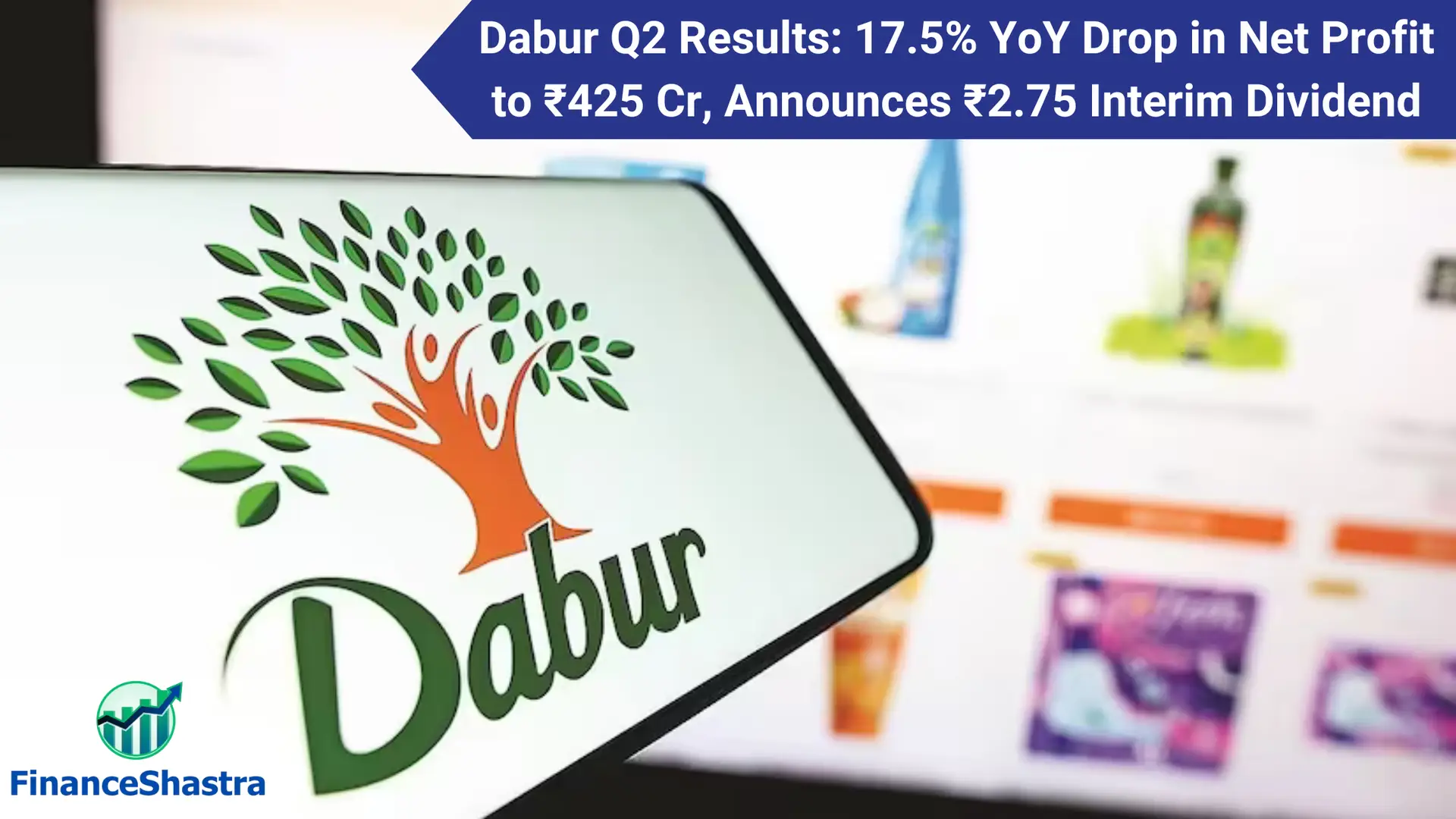Dabur India Ltd: Buy Target at ₹597. Hits 52-Week Low Amid Market Decline & Growth Concerns
Business and Industry Overview:
Dabur is a well-known Indian company that makes natural and Ayurvedic products. It sells products in over 120 countries, including Asia, Europe, and the U.S. Some of its popular brands are Dabur Chyawanprash, Dabur Honey, Dabur Red Paste, Dabur Amla, Vatika, and Real fruit juices. The company started in 1884 as a small business making Ayurvedic medicines in Kolkata. Today, it is a large global company offering products in healthcare, personal care, home care, and food & beverages. Dabur mixes traditional Ayurvedic knowledge with modern science to create good-quality products. It has grown from a family business into a professionally managed company while maintaining strong values and innovation.
Dabur also cares about nature and the environment. It works to protect rare plants used in Ayurvedic medicines. The company helps farmers grow these plants. Dabur has set up greenhouses in India and Nepal to provide free saplings to farmers. This helps farmers earn money while also saving nature. The company also trains tribal communities and small farmers in eco-friendly farming. Through these efforts, Dabur is growing its business while also helping people and the environment.
CRISIL forecasts 7-9% revenue growth for the FMCG sector in the current FY25, driven by increased volume and rural demand recovery. The Fast-moving consumer Goods (FMCG) sector is India’s fourth-largest sector and has been expanding at a healthy rate over the years because of rising disposable income, a rising youth population, and rising brand awareness among consumers. With household and personal care products accounting for 50% of FMCG sales in India, the industry is an important contributor to India’s GDP. And Dabour has 17.2% market share in the industry.
Dabur India Limited, a leading Ayurvedic and FMCG company, has grown significantly since its founding in 1884. It started with Ayurvedic medicines and expanded into personal care, food, and healthcare products. Over the years, Dabur launched new products like baby care, personal hygiene, and energy drinks while also expanding its reach through acquisitions like Badshah Masala. The company has made key investments, such as setting up new manufacturing plants, including an all-women production line. Dabur is also focused on sustainability, achieving plastic waste neutrality, and adding electric vehicles to its supply chain. It continues to grow its business globally while staying committed to environmental and social responsibility.
Latest Stock News:
Dabur India Ltd.’s stock price has been falling and has now reached its lowest point in the past year. The company’s stock is performing poorly and is below key market levels, similar to the overall market trend. Although Dabur has a strong return on equity, its long-term growth does not seem very promising.
The entire FMCG (fast-moving consumer goods) sector is facing difficulties. On Tuesday, the FMCG index, which tracks major companies in this industry, dropped to its lowest level in nearly two years due to weak demand and rising costs. In the last month alone, this index fell by 12%, while the broader market (Sensex) dropped by 7%. Over six months, FMCG stocks have fallen by 22%, mainly due to low earnings, slow demand, and inflation.
Urban demand is weak due to job losses and slow salary growth, while rural areas have recovered due to good monsoons and government support. The sector recorded only 2-4% sales volume growth in the December 2024 quarter, with urban demand falling for three straight quarters. Rising raw material costs and strong competition have reduced profits for most companies.
A major factor affecting FMCG companies was the unexpected rise in palm oil prices, worsened by new government taxes on imported oils. Since companies didn’t have price protection (hedging) in place, their profit margins took a significant hit in the recent quarter.
Potentials:
Dabur India is growing its business while staying true to natural products. It is building new factories in South India and other places. Dabur also wants to make its factories eco-friendly by using less energy and water. The company is using new technology to make work faster and cheaper.
Dabur is setting up a center to help its businesses worldwide. It is also working on sustainability by using more clean energy and cutting waste. The company is hiring more women and has started factories run by women.
To meet demand, Dabur is making more products and selling more online. It is talking to customers through ads and promotions.
Dabur is also adding new products to its brands. It has launched GlucoPlus-C Instant Energy Drink and entered the spices market with Badshah Masala. The company wants to grow bigger while caring for people and nature.
Analyst Insights:
- Market capitalization:₹ 85,621 Cr.
- Current Price:₹ 483
- 52-Week High/Low: ₹ 672 / 480
- P/E Ratio:48.4
- Dividend Yield:1.12 %
- Return on Capital Employed (ROCE): 22.3 %
- Return on Equity (ROE): 19.2 %
Dabur is a big company that makes good profits. It gives regular dividends to its investors. The company manages money well and earns good returns. It is also growing by making new products and expanding factories.
However, there are some problems. Sales growth has been slow in the last five years, and the stock price is high compared to the company’s earnings. Right now, the stock is near its lowest price in a year, which shows that many investors are not confident. The FMCG sector is facing problems. Costs are going up, and fewer people are buying products.It is better to wait before buying this stock. If sales improve or the stock price becomes cheaper, it will be a better time to invest.



